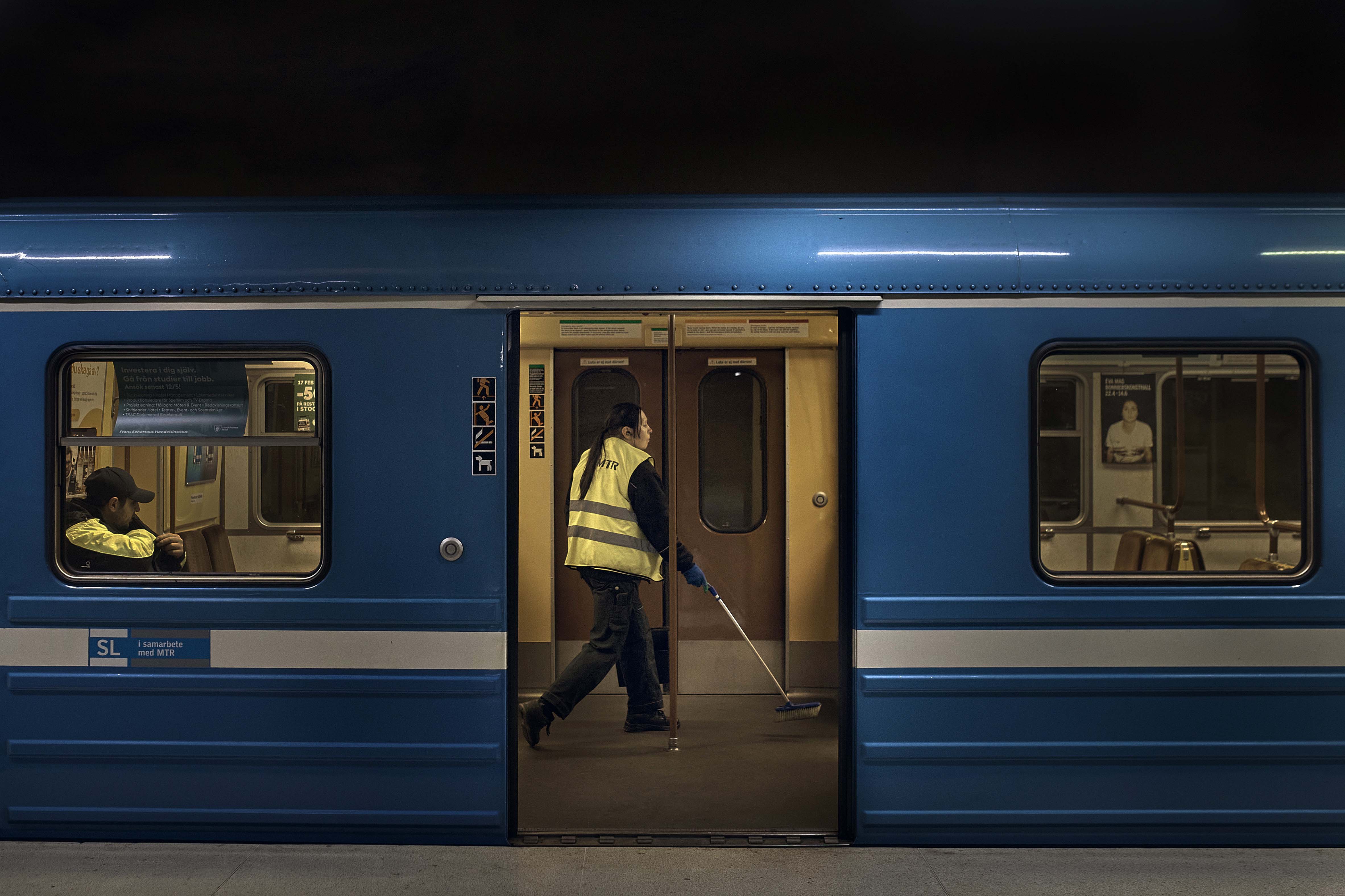
Her sense of shock has been shared across coronavirus-hit Sweden’s frontier regions as Norway and Denmark have joined Finland in banning Swedes from crossing shared borders for fear that coronavirus might come with them.
Now, three months into the ban, the shock is turning into a nagging feeling that fundamental damage might have been done to Nordic relations.
In Sweden’s wooded western districts, where shopping malls built to serve Norwegian day-trippers stand empty, and in quiet Stockholm souvenir shops set up to target ferries from Finland, a realization is dawning: Maybe hassle-free travel between Nordic states for all citizens can no longer be taken for granted.
It’s a shift with potentially serious ramifications, throwing into question a 66-year integration project.
The wisdom of living in one country and setting up a business in another or sharing infrastructure over borders, hallmarks of the Nordic integration project, suddenly feels up for debate.
“Many decision-makers both in the private sector and the public sector feel betrayed by the border closure,” said Philip Sandberg, mayor of the southern Swedish town of Lund, half an hour’s drive from the bridge to Denmark. “It is hard to trust in continued integration in the future when we have seen that things can change so much from one day to the next,” he told POLITICO.
The shift shows how in some parts of Europe, the coronavirus-related public health crisis has triggered something more akin to a diplomatic crisis, especially where countries have sought to tackle the virus in different ways and seen varying death rates.
In the early days of the pandemic in March, Dutch and Belgian authorities clashed over differences in their approaches. English and Scottish health authorities also locked horns.
But since March, Sweden has become the leading example of a country going its own way and then struggling to harmonize with neighboring states.
Sweden’s relaxed approach to fighting the virus — it left schools, businesses and borders open — has worried its neighbors who have watched with concern as the Swedish death rate from Covid-19 has spiked to among the highest in Europe.
Now, as the immediate threat of Covid-19 begins to recede, officials across capitals are facing up to the damage done to Nordic relations, firstly by Sweden’s insistence on pursuing its own approach and then by its neighbors’ insistence on banning Swedes from their territory.
“I am worried how long these scars will last,” Foreign Minister Ann Linde said in a recent interview with Swedish daily DN.
When she announced an extension on the ban on visitors from Sweden last week, Norwegian Prime Minister Erna Solberg also acknowledged the strain the policy was putting on Nordic relations.
“We have to be honest and say that this is a difficult thing for the Nordic region,” she told reporters.
The modern integration of the Nordic states dates back to 1954 with the introduction of the Nordic Passport Union, which allowed citizens of Nordic states to travel freely across the region and live and work in any of the countries.
Since then, Nordic officials have worked effectively to eliminate barriers to integration such as ensuring a Norwegian electrician can be certified to work in Finland, said Johan Strang, a researcher in Nordic studies at the University of Helsinki.
While the Nordic states diverged on whether to join the NATO defense alliance and the European Union, their commitment to integration among themselves remained strong and the Passport Union became an important symbol for them to rally around, Strang said.
However, the Passport Union saw its first disruption in 2015 with the decision by Denmark to shut the border with Sweden during the refugee crisis.
Denmark tightened the border again in 2019, citing concerns over violent crime spilling over from Sweden, and then again in March this year citing fears of the coronavirus, a move matched by Finland and Norway.
In June, with death rates lower in every Nordic state but Sweden, Norway, Finland and Denmark began relaxing border controls with each other, but not with Sweden.
Swedish businesses based on Nordic cross-border trade have looked on in dismay. The huge shopping centers in western Sweden that cater to Norwegian day-trippers say takings have fallen around 90 percent and worries about their future prospects are growing.
Small businesses in Stockholm catering to visitors on huge ferries coming in from Finland report a similar collapse.
“This year is a write-off,” said Rana Sohel, 38, who runs a souvenir shop near the city’s Old Town. “I’ve closed down two of three premises, it costs too much to have all of them open.”
In southern Sweden, Lund Mayor Sandberg said a report compiled by local lobby group Greater Copenhagen just before the border closed showed that further integration of the region including Copenhagen and southern Sweden could generate nearly 3 billion Danish kroner (€400 million) in increased economic output per year, resulting in higher tax revenues and more jobs. However, because of the border shutdown, he now doesn’t expect to see such gains materialize.
“Now, things will be the complete opposite,” he said. “If we have less integration, the recession will be deeper and more people will be unemployed.”
In Haparanda, local lawmaker Karkiainen said locals are suffering as the everyday pooling of facilities they have grown used to remains on hold. Plans for Haparanda children to attend swimming training at facilities on the Finnish side had been postponed, she said.
“People are feeling much more insecure about a lot of things,” she said. “We now need to have intensive discussions about what we can learn from this experience.”
This article is part of POLITICO’s premium policy service: Pro Mobility. From the digitization of the automotive sector to aviation policy, logistics and more, our specialized journalists keep you on top of the topics driving the Mobility policy agenda. Email [email protected] for a complimentary trial.
Source: politico.com
See more here: news365.stream






